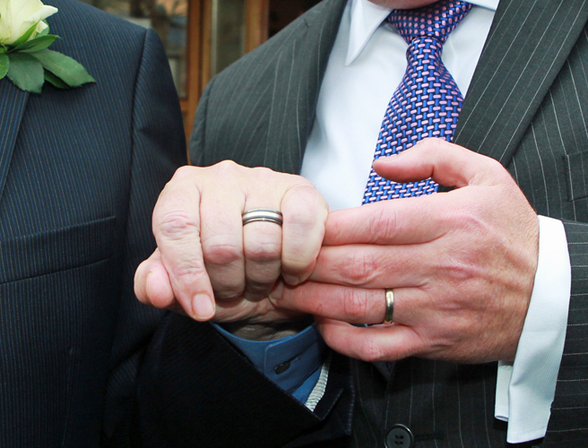Simon Foy | Contributing Writer
As the referendum in May approaches and campaigning on both the Yes and No sides intensifies, it is becoming ever clearer that the younger generation will play a major role in the success or failure of this possible change to our constitution. The opinion polls suggest that support for the Yes vote among today’s youth far outweighs the support for the No vote, something which I find very welcoming and support whole-heartedly. Where my concern lies, however, is in the fear that a substantial amount of young men may abstain from casting their vote for the Yes side due to a fear of backlash among their male friend groups. I ask, could an implicit form of homophobia have as much of an effect on the outcome of the referendum as a more explicit form? I write this piece as a young straight male, and in doing so, attempt to look at the ongoing problem of the stigmatisation that surrounds homosexuality, especially among young men and also try to address the problems that will remain, regardless of the success or failure of the May referendum.
Could an implicit form of homophobia have as much of an effect on the outcome of the referendum as a more explicit form?
It may be something to do with man’s perceived view of masculinity or a man’s sense of “macho”-ness, but it seems to me that young men are less likely to show their support for same-sex marriage to the same extent that young women are. I have noticed among my friend groups in college and in lectures that it is almost unanimously girls who display the Yes Equality badge on their bag. Furthermore, I wasn’t surprised to find that out of my nineteen Facebook friends who like the Yes Equality page on the social media site, only three of them were heterosexual men. In saying so, I am not making the point that young men don’t support the campaign (I’m sure many do) I am simply trying to make the point that young men are less likely to openly show their support for the May referendum than young women are.
One of the main reasons I am writing this piece is because I found myself one day in a lecture noticing the Yes Equality badge on a girl’s bag. I was quick to ask myself if I should show my support in such a way. I suddenly became quite nervous and apprehensive at the idea. Yes I fully support same-sex marriage, yes I think it will be a big step forward for our society…..but will the lads slag me about it? Even though it is something I fundamentally believe in, I found myself anxious at the idea of displaying my support for same-sex marriage so publicly. This made me realise that despite the possibility that same-sex marriage may be legalised this year, my generation have grown up in a society where homophobia is still prevalent. Even if the referendum is to be successful in May, our society still has much deeper problems with regards to homophobia that must be dealt with sooner rather than later.
Having spent six years in an all-boys school, it is evident that homophobia is still present from first year right through to sixth year, at times unbeknownst to the boys who are creating the negative mentality. Homophobic slurs become part of a teenage boys vernacular from the age of twelve (maybe even younger), where everything is ‘gay’ and anyone who goes against the status quo is a ‘fag**t’. These words are thrown around in a derogatory sense from an early age in a young boy’s development and only add to the already existing stigma that surrounds gay people in our society. It is grass root problems such as this that must be addressed if we are to end the stigma that surrounds this issue. How can we be fully acceptant of gay people if cynical remarks about them are being uttered by young teenagers who don’t fully understand the consequences of making these negative comments? It is deemed unacceptable in our society to use racial slurs that would cause offence to people of different race, so why is it deemed acceptable for young teenagers to use homophobic slurs that cause offence to the gay community? And more importantly why isn’t there anything being done about it?
Despite the possibility that same-sex marriage may be legalised this year, my generation have grown up in a society where homophobia is still prevalent.
The passing of the May referendum would certainly be a huge stepping stone in the right direction for gay rights in Ireland. The need for young people to go to the polls and support the referendum is paramount to its success. In this case then, implicit homophobia could be just as detrimental as active homophobia if it makes people who support the referendum feel uncomfortable going to vote for it or encouraging others to vote. I would strongly encourage people to go to the polls in May and support it. For a country that only legalized homosexual activity in 1993, it would show that we have moved away from old conservative thinking and can be seen as a modern European democracy. That said, it is without a doubt that homophobia exists in this country, particularly among young men. The passing of this referendum will be a step forward, but it will not solve the problems of homophobia which run much deeper within our society and we must not forget this.







